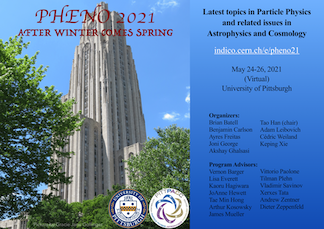Speaker
Description
The data on tau neutrino is very scarce, only a few experiments have detected its interactions. At FNAL beam dump experiment DONUT, tau neutrino interaction cross-section was directly measured with a large systematical (~50%) and statistical (~30%) errors. The main source of systematical error is due to a poor knowledge of the tau neutrino flux. The effective way for tau neutrino production is the decay of Ds mesons, produced in proton-nucleus interactions. The DsTau experiment at CERN-SPS has been proposed to measure an inclusive differential cross-section of a Ds production with a consecutive decay to tau lepton in p-A interactions. The goal of experiment is to reduce the systematic uncertainty to 10% level. A precise measurement of the tau neutrino cross section would enable a search for new physics effects such as testing the Lepton Universality (LU) of Standard Model in neutrino interactions. The detector is based on nuclear emulsion providing a sub-micron spatial resolution for the detection of short length and small “kink” decays. Therefore, it is very suitable to search for peculiar decay topologies (“double kink”) of Ds→τ →X. After successful pilot runs and data analysis, CERN had approved the DsTau project as a new experiment NA65 in 2019. During the physics runs, 2.3×10^8 proton interactions will be collected in the tungsten target, and about 1000 Ds→τ decays will be detected. In this talk, the results from the pilot run will be presented and the prospect for physics runs in 2021-2022 will be given.
Summary
The DsTau project proposes to study tau-neutrino production in high-energy proton interactions. We present the results of pilot run analysis and give prospects for the physics runs in 2021 and 2022.
